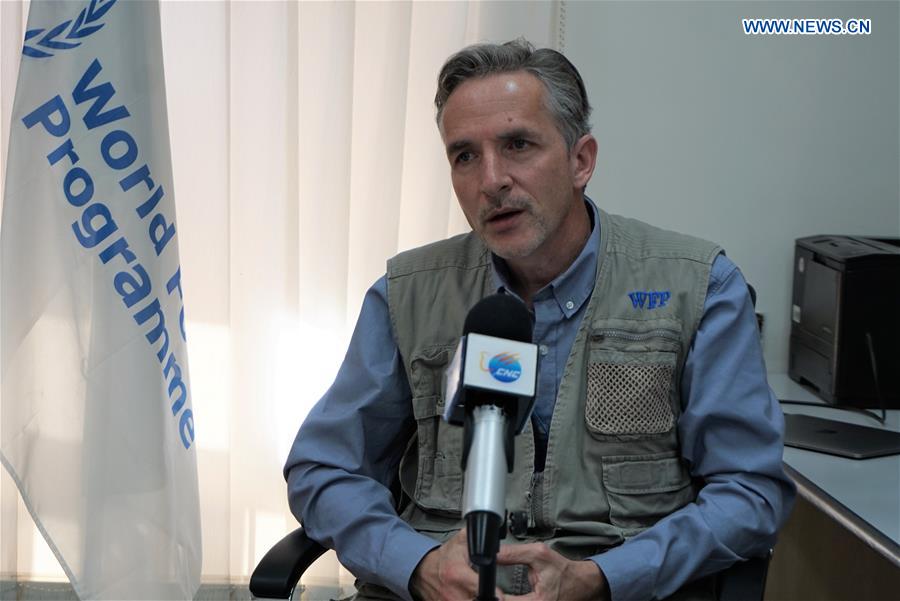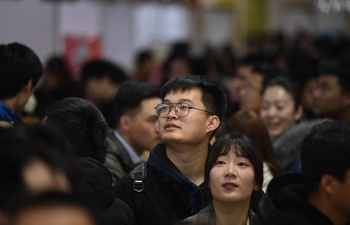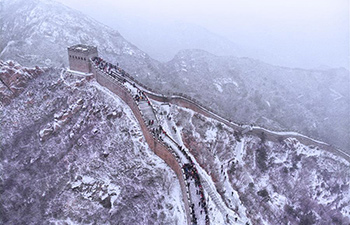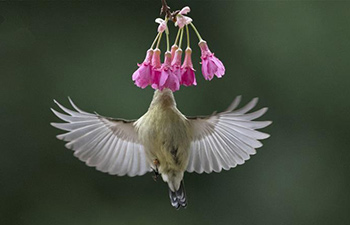
The World Food Programme (WFP) Yemen Representative and Country Director Stephen Anderson speaks during an interview in Sanaa, Yemen, on Feb. 14, 2019. The World Food Programme (WFP) expects Yemeni warring parties to reach an agreement soon to facilitate access by humanitarian workers to the Red Sea Mills in the key port city of Hodeidah, Anderson told Xinhua in an exclusive interview on Thursday. (Xinhua/Mohamed al-Azaki)
SANAA, Feb. 14 (Xinhua) -- The World Food Programme (WFP) expects Yemeni warring parties to reach an agreement soon to facilitate access by humanitarian workers to the Red Sea Mills in the key port city of Hodeidah, a WFP official told Xinhua on Thursday.
"The WFP expects all parties to facilitate our access to the mills," Stephen Anderson, WFP representative and country director in the capital Sanaa, told Xinhua in an exclusive interview.
"It is a complex area because it is very close to the front line so it's not easy to gain access ... but we need to have a sustained access," he said.
"There are 20 million people in Yemen who are considered hungry now, which is 70 percent of the population ... Among them we are trying to assist the most needy people," Anderson added.
The WFP official said he expected an international donor conference to be held within weeks in Geneva that would focus on support to war-devastated Yemen.
On Monday, UN Special Envoy to Yemen Martin Griffiths warned that up to 51,000 metric tons of WFP's wheat grain aid stored in the besieged city of Hodeidah is "at risk of rotting."
"The WFP's grain stored in the mills, which was enough to feed 3.7 million people for a month, has been inaccessible for over five months and is at risk of rotting," Griffiths said in a statement.
Hodeidah is the lifeline of Yemen's most commercial imports and humanitarian aid. The four-year civil war has pushed millions of people to the verge of starvation and created what the UN calls the world's worst humanitarian crisis.
The warring parties reached a peace deal in Stockholm in December last year. They have largely held the cease-fire deal in Hodeidah but failed to withdraw their forces.
The Houthi rebels continue to fortify themselves inside the city while the government troops have been massing on the southern and eastern outskirts.
Last week's negotiations led by Michael Anker Lollesgaard, head of the UN cease-fire monitor team in Hodeidah, resulted in what the UN called a "preliminary deal," but the warring parties hotly disputed the deal.















